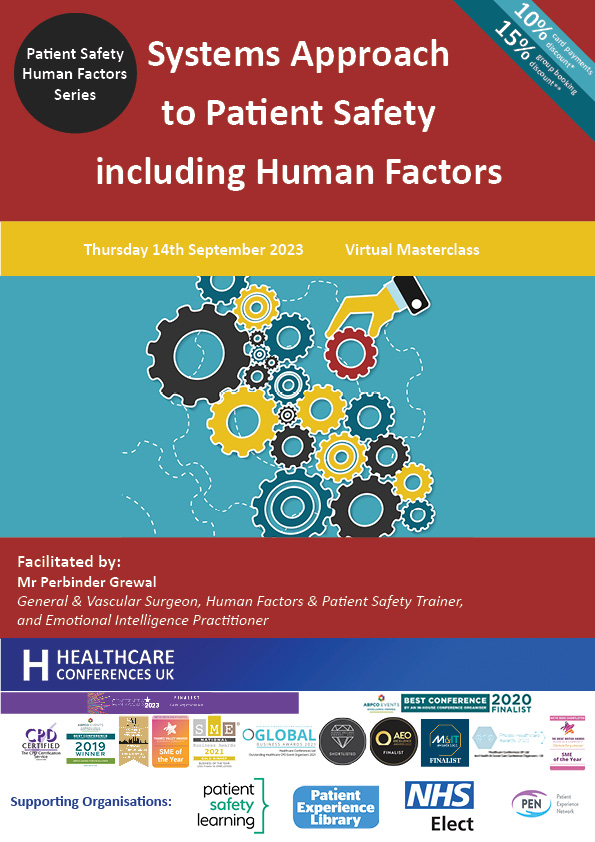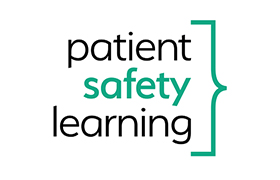Find out more about virtual attendance
This one day masterclass is part of a series of masterclasses focusing on how to use Human Factors in your workplace.
Leadership in the NHS is the responsibility of all staff. Understanding human factors will allow healthcare to enhance performance, culture and organisation.
These masterclasses have been designed to align with the new Patient Safety Syllabus and subsequent Patient Safety Incident Response Framework (PSIRF). We will look at why things go wrong and how to implement change to prevent it from happening again or mitigate the risks.
This masterclass will focus on systems to improve patient safety.
Discount for attending all five Patient Safety and Human Factors Series masterclasses: £295+VAT per masterclass or, £1180+vat for all five.
Key Learning Objectives:
- Understand what Human Factors are
- What are systems?
- Systems approach
- Organisational culture and learning
- Proactive patient safety culture
Facilitated by Mr Perbinder Grewal, a motivational speaker, consultant and leadership coach, and former General & Vascular Surgeon. Perbinder uses his perspectives gained from working in the NHS to empower healthcare staff and organisations to positively impact quality and safety. He has led on medical education both locally and nationally. He is a Member of the Faculty of Surgical Trainers at the Royal College of Surgeons of Edinburgh and formerly lead for e-learning for healthcare for the Royal College of Surgeons of England. With Postgraduate Certificates in Leadership and Coaching, Perbinder is a patient safety and human factors trainer, which has led him to embark on learning behaviour, staff engagement, nudge theory and psychology, and he is an Emotional Intelligence Practitioner. Linkedin: www.linkedin.com/in/perbindergrewal
Feedback from previous masterclasses facilitated by Perbinder includes: “Perbinder is very insightful in the way he talks about all the specified topics like Motivation, Psychological Safety, Workplace cultures, Resilience, Mental Toughness and how that can all be connected to each other in relation to changing staff behaviours and attitudes"







